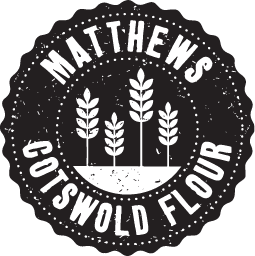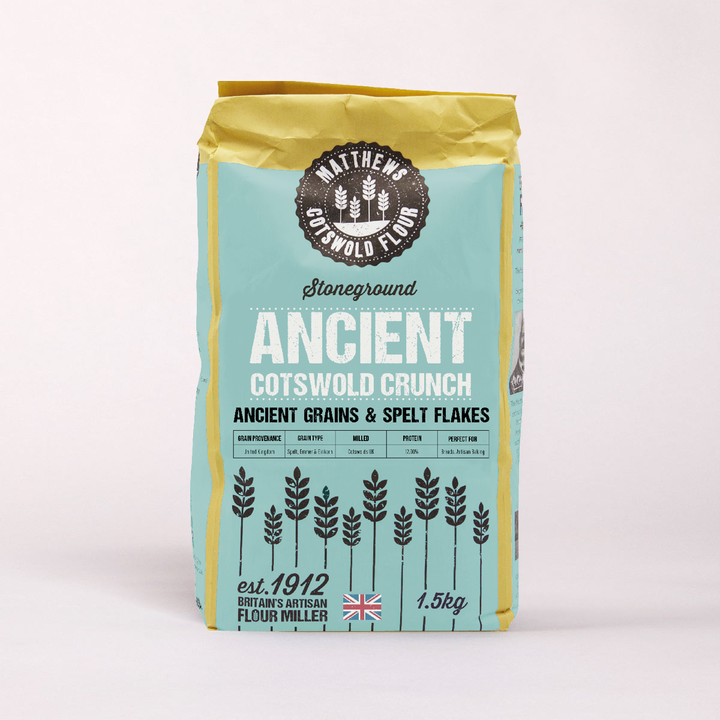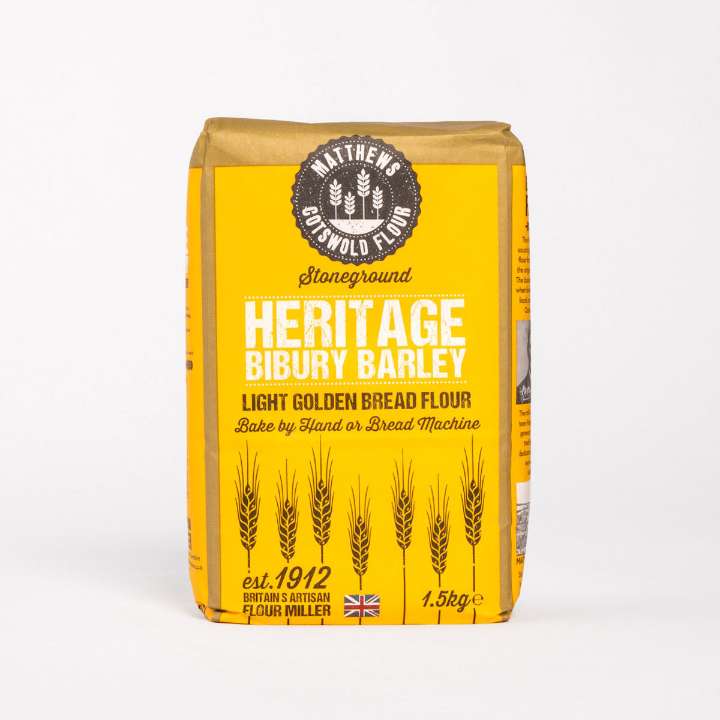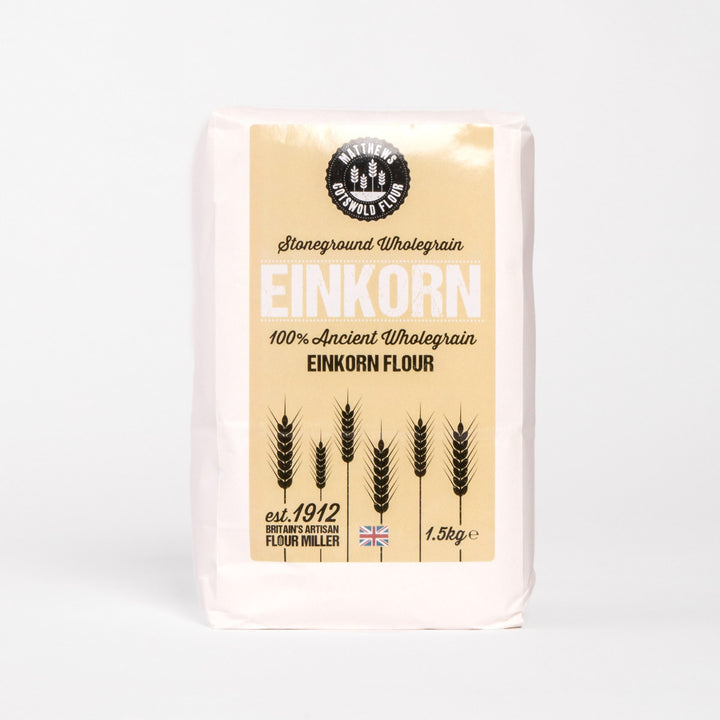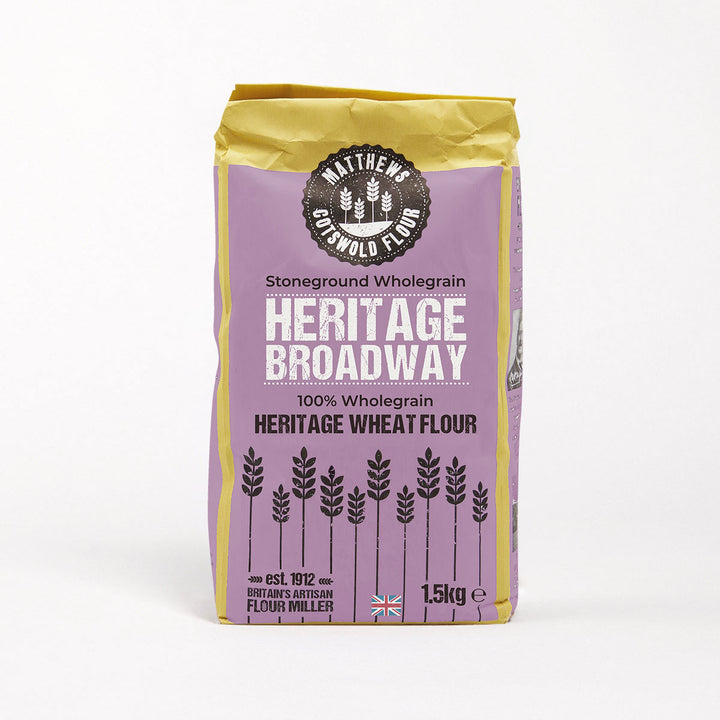French bread, a history.
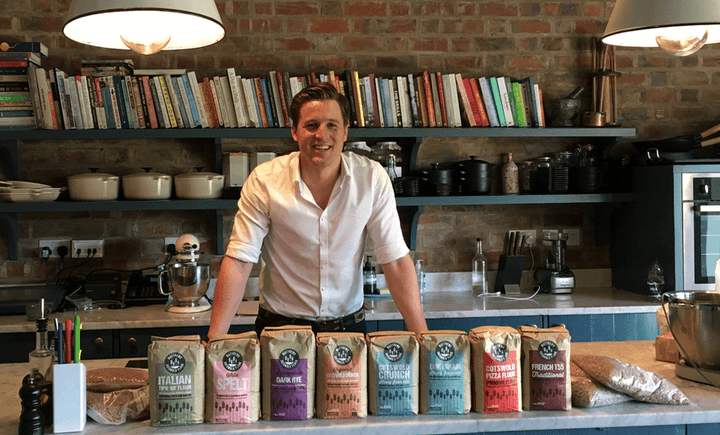

Me (Bertie) with some of our premium Matthews Cotswold flours, left – right, Italian, spelt, dark rye, Cotswold Crunch, Eight Grain, Cotswold Pizza Flour and French T55
I don’t watch much TV, I much prefer getting outdoors, either on the coast surfing or out in the field with the British Army reserve. However, British Bake Off bread week naturally draws me back inside.
Why, of all the amazing baking on the show, is bread week my favourite? Because bread is such a perfect showcase for premium bakers flour!

Spot the Matthews Cotswold Flour in the background!
People completely understand that the engine you have in your car makes all the difference to its performance on the road. Well the same applies to the ingredients in your baking. Not all flours are the same, and the quality and success of your bakes, especially bread, can vary according to the quality of your flour. Every mill is different but the Cotswold Mill is set up to provide the best Stoneground and Roller Milled Flour in the UK.
This summer we were delighted to welcome Tiphaine to our mill in Shipton under Wychwood. Tiphaine like me is from a long line of farmers and baking enthusiasts!

Tiphaine baking at our mill in Shipton under Wychwood.
She came over as part of a friendly exchange where we share learning and skills between family millers. She worked tirelessly baking and checking flour for us and I am very grateful to her.
I asked her if she wouldn’t mind writing a blog post about French bread, to accompany the launch of our own Moulin Saint Martin French flour, the very flour she had been working with and testing throughout the summer.
I couldn’t begin to write a blog about bread for you in French, it would quite literally give you a pain to read it (note the joke there, pain=bread in French, that’s the one word I do know.) I hope readers of this blog post will be suitably impressed and delighted therefore by the information below from Tiphaine, describing the history of French bread and the importance of the right quality wheat.
French bread, a history
“In France, baking bread is a real art, a calling. Nowadays, we like to eat bread whatever his shape, accompanying all dishes. A baguette for breakfast; a loaf for your meal; a slice of a “Tourte” for the cheese, a piece of wholemeal bread for the health… In short, the list is endless. But it has taken dozens of years for the bread to find again his letters of nobility and its right quality.

Let’s go back to the beginning.
The art of bread making came in France (Gaulle at this moment) with the invasion of the Romans and Julius Caesar. Then throughout history, making bread and its ingredients have improved. Bread has become sacred and it also fortifies the survival of people against famine, while provoking revolution when it runs out.
So, we arrive in 1789, French people are starving, and crying out for the reduction of the price of the grains and so the bread. Thinking that in the jail of the Bastille there is a stockpile of harvest, they decide to take up arms and besiege the prison. And it becomes one of the most important events of the French revolution.

As time passes recipes for bread are continuously improved, and machines appear: better ovens, mixers, grinding machines… They permit the tendency more and more towards a white and fresh bread. At that time, a white flour was sign of purity and wealth.
But the massive arrival of the industrialisation is not in service of the bread quality. The “true” bread disappears and gives way to an industrial and mediocre bread. So consumption per day and per person greatly decreases from 900g in 1900 to 160g in 1990.
However, for dozens of years now, the profession of the bakers has been mobilising to restore the image of bread. Despite ups and downs, French bread’s big history ensures that it is unique worldwide.
So what are the secrets accumulated over time? Why is French bread so good?
First, we have already seen that history matters in the recipe and the learning.
Secondly, we must look at the actual legislation that exists. Believe it or not there are even rules to call bread, bread in France.
To be a “bread of French Tradition”, it always has to be prepared with flour comprised of just wheat, potable water and salt (it should contain an average of 19g salt/kg flour, that can be a lot compared to other countries, and is maybe a clue to its particular taste). The fermentation can be done with yeast or sourdough. Very few additives are allowed. You can add less than 2% of soya, bean or malted wheat flour.
Third point, the wheat.
In France a big portion of the wheat is grown for human consumption and especially for making flour. For many years, the French have grown their wheat to make bread, instead of the Italians for example who grow wheat with the aim of making pizza.
Actually, and I let you in on a big secret, everything is about the protein content of the wheat, and this content depends on the farming methods. So French wheat is really different to English wheat.
While English farmers try to ensure their wheat is 12 or 13% protein on average, and ideally higher, in France this level is the maximum! On the international market, this makes our wheat less competitive, but for baking real French bread it could be one of the secrets to success.

A flour rich in proteins will give strength to the dough which will be perfect to make a brioche. But for the bread, not too much protein is needed.
The properties of these ingredients, being so simple and pure mean there is another requirement for a good French bread: “always eat it fresh.”
To have a good bread it’s important to eat it as fresh as possible. Some can be kept for several days but its better when it’s just come out the oven. In France it’s possible to eat fresh bread because there are bakeries everywhere and bakers make bread every day. The more bakers there are, the better the bread is.
Finally, even the climate matters. It’s not commonly known but the region and the weather where you mill the flour and make the bread is important for the texture and the taste of it.
And though all the above is true, great bread also perhaps depends on a higher power?”
Thank you Tiphaine!
Are you interested in farming, milling and baking or know someone who is? Matthews are looking for their next intern, if you know anyone get in touch bertie@fwpmatthews.co.uk
← Older Post Newer Post →
